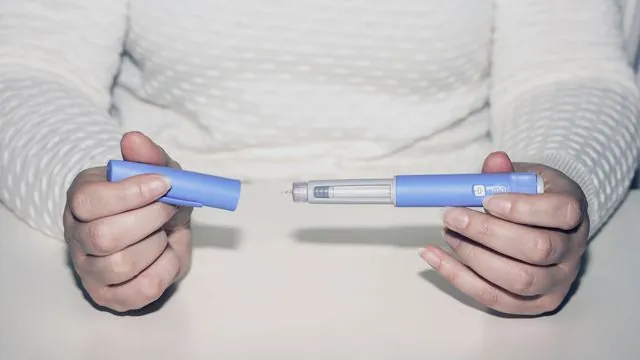
Breakthrough Research: Obesity and Diabetes Medications May Shield Your Kidneys from Deterioration!
2024-11-26
Author: Yu
Breakthrough Research: Obesity and Diabetes Medications May Shield Your Kidneys from Deterioration!
In an exciting revelation from The George Institute of Global Health, recent research suggests that a well-known class of medications used to treat obesity and type 2 diabetes may significantly lower the risk of kidney deterioration and failure—regardless of whether individuals have diabetes.
This pivotal study, published in The Lancet Diabetes & Endocrinology, highlights a potential breakthrough for patients, especially those suffering from chronic kidney disease (CKD), which affects approximately 850 million people globally. With projections indicating that CKD may emerge as the fifth leading cause of death by 2050, the implications of these findings are monumental.
Could GLP-1 Receptor Agonists Become the New Kidney Protectors?
The class of drugs in question—glucagon-like peptide 1 (GLP-1) receptor agonists—have gained considerable attention for their compelling effects on blood sugar regulation, obesity management, and cardiovascular health. This begs the question: could these drugs also be effective in preventing or mitigating CKD?
Previous studies hinted at a connection, with a 2021 analysis suggesting that GLP-1 receptor agonists might improve kidney health in patients with type 2 diabetes. However, this earlier study did not assess the critical outcome of kidney failure, which is often the grim endpoint requiring dialysis or transplantation—and can even result in death.
Acknowledging this gap, Sunil Badve, a professorial fellow at The George Institute, notes, "We hypothesized that GLP-1 receptor agonists could lead to improved kidney and cardiovascular outcomes, particularly for individuals at high risk for disease progression.”
The Meta-Analysis Reveals Hope for Kidney Health!
The new meta-analysis integrated data from 11 trials involving over 85,000 participants: approximately 67,000 with type 2 diabetes and around 17,000 without a history of diabetes. Researchers evaluated the effects of seven different GLP-1 receptor agonists, prominently featuring semaglutide (marketed as Ozempic® and Wegovy®) and liraglutide (known as Victoza®).
The results were striking! The use of GLP-1 receptor agonists was found to reduce the risk of kidney failure by 16% and the worsening of kidney function by 22% when compared to a placebo group. This marks a significant advancement in the understanding of these medications as not merely effective for diabetes and cardiovascular issues, but also as vital protectors of kidney health.
"As the first study to demonstrate a significant reduction in the risk of kidney failure related to GLP-1 receptor agonists, we affirm their role as crucial medications for kidney protection," commented Badve. Additionally, the analysis indicated that these medications also lowered the risk of cardiovascular death by 14%, non-fatal heart attacks, and non-fatal strokes, alongside a 13% reduction in overall mortality.
A New Era in Kidney Disease Management?
The potential for GLP-1 receptor agonists to not only lower blood glucose levels and manage weight but also to deliver kidney and heart protection paints a hopeful picture for the management of patients at risk of kidney deterioration and cardiovascular events.
While these findings are promising, Badve underscores the necessity for further studies focusing specifically on high-risk individuals with chronic kidney disease, cardiovascular issues, and those with type 1 diabetes.
Stay tuned as this groundbreaking research unfolds, potentially rewriting treatment protocols and improving the lives of millions facing the grim realities of kidney disease!


 Brasil (PT)
Brasil (PT)
 Canada (EN)
Canada (EN)
 Chile (ES)
Chile (ES)
 España (ES)
España (ES)
 France (FR)
France (FR)
 Hong Kong (EN)
Hong Kong (EN)
 Italia (IT)
Italia (IT)
 日本 (JA)
日本 (JA)
 Magyarország (HU)
Magyarország (HU)
 Norge (NO)
Norge (NO)
 Polska (PL)
Polska (PL)
 Schweiz (DE)
Schweiz (DE)
 Singapore (EN)
Singapore (EN)
 Sverige (SV)
Sverige (SV)
 Suomi (FI)
Suomi (FI)
 Türkiye (TR)
Türkiye (TR)